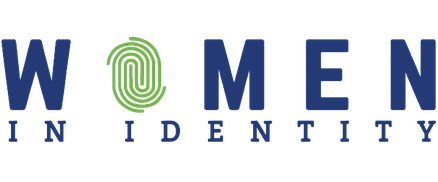
We meet Krista Pawley to find out about her role as a ‘woman in identity’ ….
Tell us about yourself and your work as Co-Lead at IdentityNORTH
We started IdentityNORTH as a small group of 30 people in a conference room and we’ve now grown into a community of over 3000 leaders from all sectors dedicated to working together to build a more innovative, secure, and inclusive digital economy.
What gets me excited about this work is the ability to connect with some of the smartest people in tech, public policy, civil society and business on some of the biggest questions facing our our world.
Over the years that I have been doing this work, I have seen how our conversations have evolved from highly technical discussions focused on IT and workflows to a more user-centric dialogue, focused on people, privacy and leveraging digital Identity. We are much more focused now on how we enable a more inclusive and safe digital economy.
I firmly believe that we have the talent, vision, and community in Canada to lead the world in digital transformation. It’s what gets me up each morning! And I know we can do it in an inclusive, privacy-enhancing way that will benefit all Canadians. The ability to be part of something that makes that kind of positive impact is so exciting to me.
How did you get to where you are today?
I have had the privilege of working at senior levels across government (on and off Parliament Hill), the private sector (financial services, loyalty, and consumer retail sector leading teams in over 50 countries) and the non-profit world (working with a global leader in education and financial inclusion). Five years ago I decided to take what I had learned over the past 20 years and turn my experience, network, and energy towards building communities of action around the big questions that have the potential to drive positive change in Canada and around the world.
Inspired by the leaders and mentors who guided me throughout my career, I worked with communities like IdentityNORTH, SingularityU Canada, the Atlantic Council Geo Tech Centre, and Equitas to build communities of leaders who believe that we have the tools, the technology, and the responsibility to build a better future together.
Seek out the different and invite them to be part of the conversation.
What is the most important lesson you have learned along the way?
People like to be asked, and they like to be thanked. A political boss taught me that!
If you are looking to build a community, you need to think about who should be part of that community. Don’t go just for those you already know and who look, sound, and think like you. Invite people from different backgrounds and perspectives. Seek out the different and invite them to be part of the conversation. This is how we grow, how we learn. When people feel included, they are more likely to help you and you are more likely to learn.
Oh, and say thank you. Being grateful and expressing that gratitude shows others that you recognize and appreciate them. It also re-enforces your own sense of appreciation for all that is good and constructive around you. That gratitude can help see you through a lot of challenges.
What’s your pitch to CEOs in the identity space? What do you suggest they START / STOP / CONTINUE doing and why?
If you are looking to grow your business in the digital age, digital identity is a vital enabler of that growth. The Pandemic pushed us forward at least five years in terms of customers’ willingness to adopt and demand secure, trusted, convenient, and user-centric digital services. From e-commerce and on-line banking to healthcare and education, every sector has the potential to be transformed through digitisation. The leaders who recognize this and build tools to enable their organisations to adapt will not only survive; they will thrive.
CEOs and Boards need to STOP looking in the rearview mirror and building strategies and business models that imagine a future that looks like our past. They need to START thinking about the exponential technologies that are transforming our world and think about how these might impact their business and sector. This new way of leading will require both courage and imagination. They need to START seeking out truly diverse perspectives to help them imagine the unimaginable future and plan for it – because chances are what is unimaginable is more likely than many believe.
Lastly, they need to CONTINUE building the critical infrastructure that will enable them to seize these opportunities. Working with organizations like DiACC (Digital ID and Authentication Council of Canada), Women in Identity, and IdentityNORTH, leaders have the opportunity to move ahead of the competition. Diverse viewpoints from these extended teams helps with understanding and implementing the critical frameworks and tools that will make a real difference.
diverse perspectives help to imagine the unimaginable future
Why does diversity matter to you?
Diversity is the key to learning. If all we ever hear are the voices of those who look, think, and feel like us, we will fail to learn and grow.
What book/film/piece of art would you recommend to your fellow members?
Warren Berger’s A More Beautiful Question.
Many of us have lost our curiosity; we are afraid to ask questions for fear of looking foolish. Berger shows us that the foolish thing is , in fact, to stop asking. That learning, wisdom, and growth come from the courage to ask and stay curious.
What advice would you give to the teenage ‘you’?
Seek out the people you admire and ask them for advice. I was too shy as a teen to do this. When I got older, I learned that many of the people I admired were kind, generous people who were happy to help when approached with a thoughtful, clear request.
Find Krista on Twitter and LinkedIn
